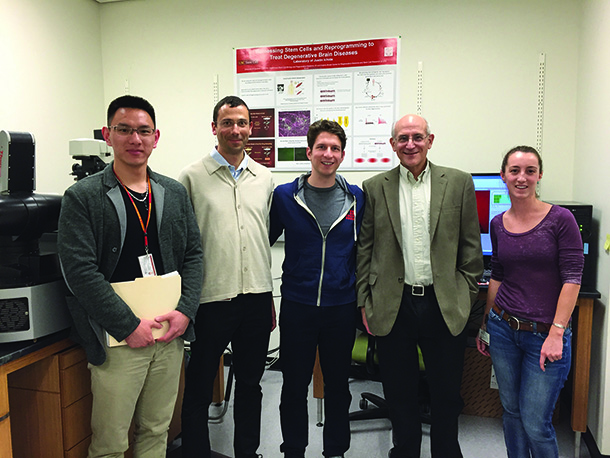There has always been one insurmountable problem related to hearing loss: When the sensory hair cells in the inner ear die, they don’t regenerate. These microscopic cells signal to the brain that it is hearing a noise and the fact that they do not regenerate is the reason that hearing loss is irreversible.
But Neil Segil, PhD, professor of research in the Department of Stem Cell Biology and Regenerative Medicine at the Keck School of Medicine of USC, hopes that the research going on in his laboratory could provide real solutions for people with hearing loss, whether it be from aging, a genetic predisposition, or as a result of treatment with antibiotics or chemotherapy.
Collaborating with the Ichida lab from USC Stem Cell, the team has been able to reprogram skin cells to develop into sensory hair cells. This scientific feat not only is creating new understanding of how they develop and why they die, but also creating new possibilities for finding treatments that will prevent hearing loss and to restore it after it is lost.
Getting to this point took a major scientific effort that was made possible because of an extraordinary gift from the Sidgmore Family Foundation. The family made a contribution to the USC Tina and Rick Caruso Department of Otolaryngology–Head and Neck Surgery, and earmarked the funds for cutting edge research, which has supported the efforts of the Segil lab.
The Sidgmore family became aware of the research efforts of the Segil lab through a relationship with the late John Niparko that dated back more than 20 years when Michael Sidgmore became a patient. When it came to finding a research project to finance, Michael Sidgmore said that the family was happy that Niparko steered them to Segil’s research.
“We wanted to fund innovative research that is pushing the dial,” said Sidgmore, who added that funding scientific research is similar to venture capital funding because it is hard to know whose research will lead to breakthroughs. “You are really backing the people doing the work and we think we would be hard-pressed to find a better team.”
— Hope Hamashige


